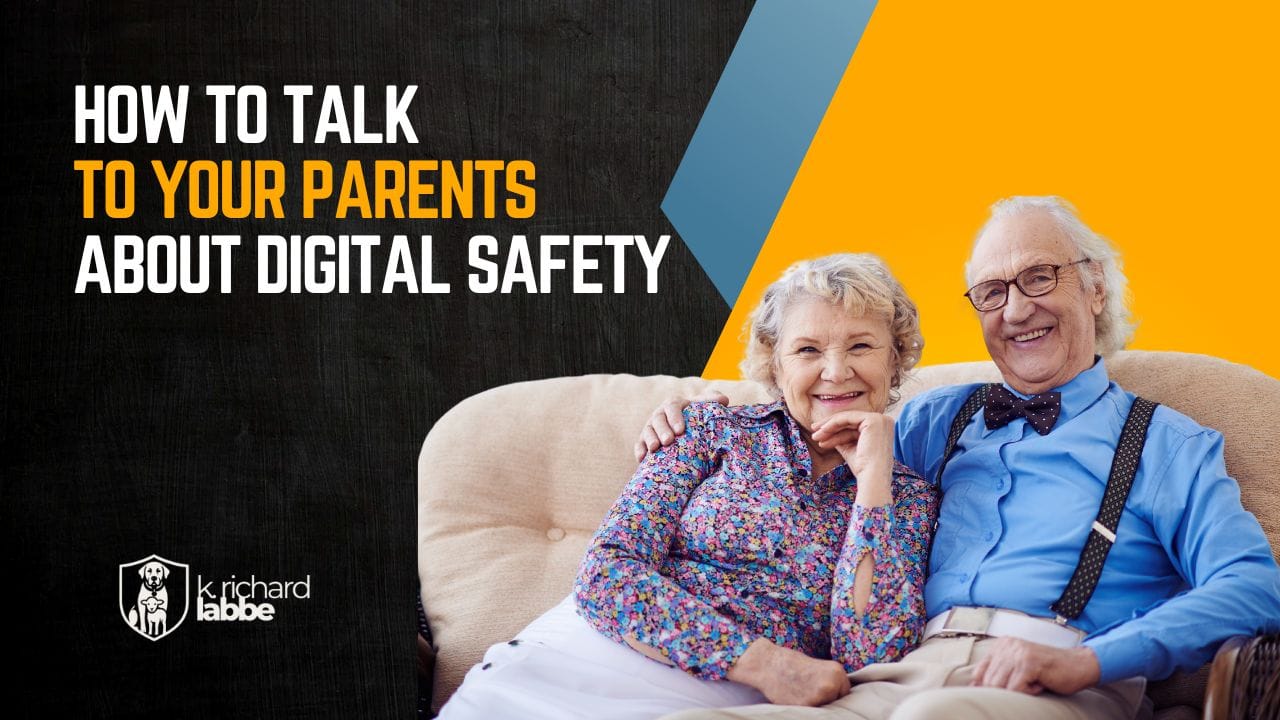How to Talk to Your Parents About Staying Safe in a Digital World
How to Help Without Overstepping

At some point, things start to shift.
You catch yourself explaining the difference between a real Amazon notice and a phishing scam — to the same person who once taught you how to tie your shoes. You’re offering to set up passwords or freeze credit reports, and it feels… weird. A little delicate.
You want to help your parents stay safe. But you don’t want to make them feel small. And the last thing you want is to come across as bossy.
So how do you talk about personal security without it turning into a power struggle?
Here are a few things you might find helpful — especially when the goal is to care, not control.
1 - Start With Shared Experience
Instead of saying, “Don’t click on links like that,” try empathy - something like:
“You know, I almost fell for one of those last year — it looked completely real.”
Now it’s not a correction. It’s a moment of connection. And that opens the door for trust.
2 - Ask, Don’t Lecture
No one likes being handed a checklist of what they’re doing wrong.
So instead of rattling off steps they “need” to take, ask a simple question, maybe something like:
“What do you usually do when you get a call from a number you don’t know?”
“Want me to show you the way I organize my passwords now?”
This isn’t about teaching. It’s about teaming up.
3 - Just Do One Thing
If you’re trying to overhaul everything — passwords, devices, bank alerts, privacy settings — it’s going to feel like too much. For them and for you.
Pick one simple win:
- Add a passcode to their phone.
- Freeze their credit.
- Add a trusted contact to their bank account.
One step is doable. And once they experience the peace of mind, they’ll usually be open to more.
4 - Be Their First Call
Most scammers don’t need to outsmart someone. They just need them to feel alone.
So tell your parent — kindly and clearly — that they can call you anytime if something seems off. No lectures. No “I told you so.”
Just: “Call me. We’ll figure it out together.”
5 - Watch Your Tone
This one’s easy to overlook. But tone is everything.
If your words say “I care,” but your voice says “Why don’t you get this?” — they’ll feel it. And they’ll shut down.
But if your voice says, “You’re not alone in this,” they’ll relax. And listen.
Watch Out for Those Who Watched Out for You
It’s not always simple. But it is possible.
You don’t need all the answers. You just need to show up with patience, care, and a little perspective.
You’re not trying to control your parents’ choices — just help them feel safe and supported in a world that’s changing fast.
And that’s worth the effort.
Stay safe. Be ready. Online and off.
Every effort has been made to ensure the accuracy and reliability of the information presented here. While Labbe Media, LLC strives to offer clear, well-researched guidance, this content is intended for educational purposes only and isn’t a substitute for professional advice tailored to your situation. We encourage you to use this material as a starting point—and to double-check details and consult trusted professionals when making important decisions.
